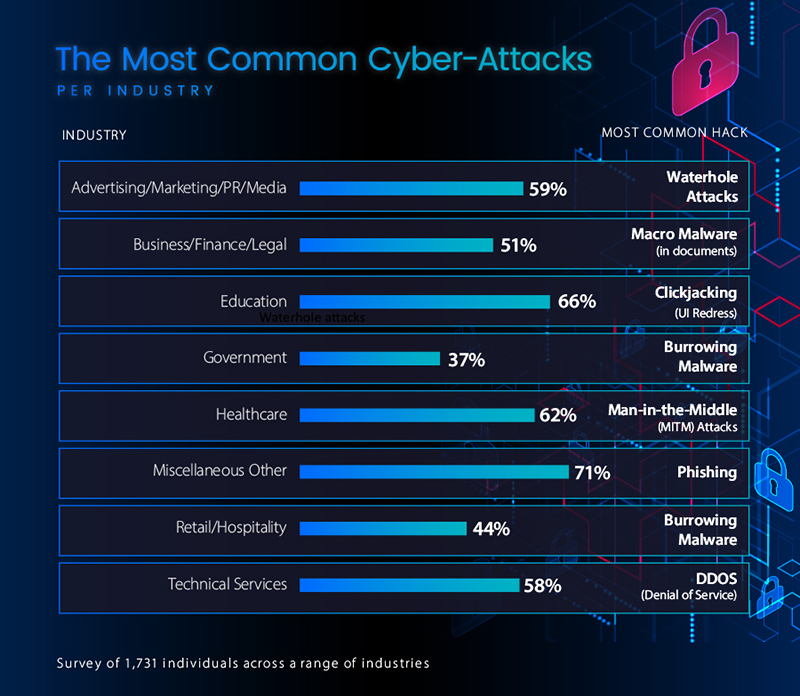The most common hacking methods per industry
More than half of UK businesses have reported cyber-attacks in 2019. And recent threats to Britain’s nuclear industry proves no-one is safe. Is each industry susceptible to a certain type of hacking? Specops Software sought to find out. Individuals from a range of sectors were asked whether they/their company had experienced a cyber-attack in the past five years (or since launch).
A total of 1,731 respondents were enlisted. Of these, they were then asked to choose which forms of hacking they have been victim to.
What is the most common cyber-attack per industry?
The most prevalent hacking technique in each industry can be revealed below and in the graphic:

- Advertising/Marketing/PR/Media – Waterhole attacks (59%)
- Business/Finance/Legal – Macro malware (in documents – 51%)
- Education – Clickjacking (UI Redress – 66%)
- Government – Burrowing malware (37%)
- Healthcare – Man-in-the-Middle (MITM) attacks (62%)
- Miscellaneous Other – Phishing (71%)
- Retail/Hospitality – Burrowing malware (44%)
- Technical Services – DDOS (Denial of Service – 58%)
Respondents from each industry were asked further survey questions, detailing efforts companies take to combat future attacks, cyber-security training in the workplace and general risks to businesses – if you would like to see this for a specific sector, please get in touch.
To combat future attacks, Specops Software’s Cyber Security Expert Darren James has provided his top tips:
- Always update – This includes antivirus software. Programmes are constantly updated, and every update provides vital patches/bug fixes. Missing any of these could expose a weakness to potential hackers.
- Nip it in the bud – at the first sign of strange activity (e.g. unusually large data usage, slow service, pop-ups, etc.), flag it – a superior will be able to carry out necessary checks and prevent a potential virus from worsening.
- Don’t believe everything you read – Many still fall for easy phishing scams and clickbait viruses, resulting in serious security breaches. Always question what is presented to you.
- If in doubt, refrain from clicking – it’s better to be safe than sorry. There’s no way to know the contents of a document/link before opening, especially as hackers adapt to the improving technological space. Ask for advice, but ultimately avoid it if you are unsure.






